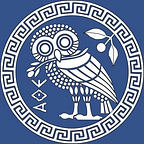Why You Don’t Need an Advanced Mathematics Degree to Be a Programmer
A computer science professor explains the evolution of coding careers
Published in
10 min readJan 8, 2020
 Most of the people I know are software engineers or computer scientists of one form or another. Most of them are very experienced and come from a time when to be either of those things required a very serious computer science…
Most of the people I know are software engineers or computer scientists of one form or another. Most of them are very experienced and come from a time when to be either of those things required a very serious computer science…
